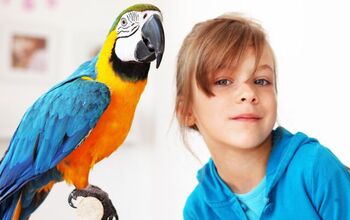Do Ferrets Make Good Pets?

Ferrets are energetic, intelligent little mammals that have gained popularity as pets thanks to their playful personalities and curious nature. While they can make rewarding companions, ferrets aren’t the right fit for everyone. Before bringing one home, it’s important to understand what living with a ferret really involves - including their care needs, temperament, and the kind of environment they thrive in.
What Are Ferrets Like?
Ferrets are members of the weasel family and typically weigh between 1 to 4 pounds. They have long, flexible bodies and come in colors like albino, sable, and silver. One of the most charming things about ferrets is their endless enthusiasm - they love to explore, dig, and tunnel. If you’ve ever seen a ferret do the “weasel war dance,” you know just how expressive and joyful they can be.
Are Ferrets Friendly?
Yes - and surprisingly social, too. Ferrets often form strong bonds with their owners and enjoy regular interaction. Many do well in pairs or small groups, as they naturally seek out companionship. With consistent handling, ferrets can become affectionate and even enjoy cuddles, although their playfulness usually outweighs their interest in lounging.
That said, ferrets are more mischievous than many other pets. They’re curious, fast, and full of energy, so a calm lap pet they are not. Prospective owners should be prepared for daily, supervised playtime outside the cage, ideally several hours a day.
How Much Space and Stimulation Do Ferrets Need?
Ferrets need both room to roam and things to do. A multi-level cage with soft bedding, hammocks, and tunnels is a great base - but it's only part of the picture. Your ferret will need a ferret-proofed area to explore daily. That means blocking off small spaces, securing cabinets and vents, and keeping tempting items (like rubber bands, cords, or houseplants) well out of reach.
Without enough activity or enrichment, ferrets can become bored and destructive - and they’re clever enough to find ways to escape or cause chaos when left to their own devices.
What Do Ferrets Eat?
Ferrets are obligate carnivores, meaning their diet must be meat-based. Look for a high-protein, high-fat, low-carb commercial ferret food - ideally one specifically formulated for their needs. Avoid foods marketed for cats or other animals unless approved by a vet, as they often lack essential nutrients ferrets require.
Fresh water should always be available, and occasional raw or cooked meat treats can help supplement their diet, but avoid sugary snacks, fruits, and vegetables.
Are Ferrets Healthy Pets?
With proper care, ferrets can live 6 to 10 years, but they’re prone to certain health issues. Common concerns include:
- Adrenal disease
- Insulinoma (a pancreatic condition)
- Dental issues
Regular vet checkups are important, and vaccinations (like for canine distemper) are recommended. Spaying or neutering is also advised to prevent health and behavioral issues.
What About Their Smell?
Ferrets naturally have a musky scent, which can be strong for some people. While some choose to have ferrets “de-scented” (removing the anal scent glands), this is controversial and doesn’t eliminate odor completely as most of the scent comes from their skin oils.
Instead of frequent bathing (which can worsen odor by drying out the skin), focus on:
- Regular cage cleaning
- Washing bedding weekly
- Using ferret-safe odor control products (like de-scenting chews or sprays)
A clean environment and good hygiene go a long way toward managing smell.
So, Are Ferrets Right for You?
Ferrets can be wonderful, engaging pets for the right kind of owner. They require time, attention, and daily play. They’re not ideal for people looking for a low-maintenance or hands-off companion, and they’re better suited to homes without very young children or delicate valuables within reach.
But if you’re ready for a curious, high-energy, affectionate pet with a lot of personality packed into a small frame, a ferret might be just what you’re looking for.

A proud mama to seven dogs and ten cats, Angela spends her days writing for her fellow pet parents and pampering her furballs, all of whom are rescues. When she's not gushing over her adorable cats or playing with her dogs, she can be found curled up with a good fantasy book.
More by Angela Vuckovic

























